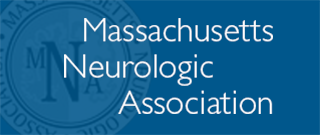-
-
-
-
-
-
-
-
-
-
-
-
-
-
-
-
Meeting with BCBS of MA
-
-
-
-
-
-
-
-
-
-
-
On September 8, 2011, members of the MNA executive committee and representatives of neurology from several institutions met with medical and administrative executives of BCBS of Massachusetts. The intent was an exchange of ideas, MNA hoped to influence the relationship of third party and neurologic clinician to suggest ways clinicians could be a positive influence in health care delivery improvement, with an emphasis on practical clinical initiatives.
Prominent for BCBS were:
Dana Gelb Safran, ScD
Senior Vice President, Performance Measurement & Improvement, BCBSMA
Barry Zallen, M.D.
Medical Director, Medical Innovation & Leadership, BCBSMA
Howard Beckman, M.D., FACP, FAACH
Chief Medical Officer, Focused Medical Analytics (FMA) [consultant to BCBSHMA in these studies]
BlueCrossBlueShield came prepared to listen, but preferred to concentrate on expounding on the process and rationale of a their recent 'Practice Pattern Variation Analysis' (PPVA) initiative, stated as "Advancing Quality, Outcomes, and Affordability: Role of Performance Measures and Reporting Programs" which focus on revealing "Unexplained Variations in Medical Care.". As MNA members may recall, letters were sent to each practicing neurologist concerning an analysis of "Migraine, Complicated -- Tendency to Use MRI/MRA." With an extensive preamble about methodology in Hypertension (cost analyisis of primary practitioners and sub-analysis of the influence of ACE vs. ARB use on cost of care) in Rochester, NY, the point made was that these data are meant to reveal usage patterns to engender dialog among doctors themselves as to how to cut costs without compromising quality of care.
- "BCBSMA has no plans to use this information for performance incentives, reimbursement, medical policy, public reporting, or member incentives, such as tiered networks.
- Rather, BCBSMA will encourage specialists and specialty societies to use the data as the basis for discussions among peers as to why this variation exists, to consider best practices, and to develop concensus-based standards defined by the profession.
- BCBSMA will continue to support and promote data sharing within the profession to address clinically-significant practice pattern variations."
We then heard about the Neurology initiative here in Massachusetts. A sometimes heated debate on the vagueness of the term "Migraine, Complicated" [which turned out to be any submitted code for 'intractable' migraine, and no other codes] ensued. The point was made that no neurologist was apparently consulted in the choice of topic of study, and that the essence of practice was that MRI is employed when there is substantial doubt about the diagnosis of migraine. A concensus appears to have been reached that, that going forward, neurologists should be involved earlier in the process of defining areas for analysis. MNA has agreed to provide names of a few neurologists willing to review not only the migraine/headache definition but also suggest relevant and useful topics for future analysis within the field of neurology.
There was a general feeling among Board members that, while larger issues were not fully addressed as much as we'd like, a start has been made on meaningful two-way dialog with BCBS to engage us as expert clinicians towards the common goal of improving understanding of the realities of practice, and reasonable means by which to analyze and educate in these matters in the future. [BCBS acknowleged that the trends in healthcare reform are to return substantial flexibility in allocation of resources back to the local level, rather than strictly top-down, by virtue of ACO models and the like, such as the BCBSMA AQC payment model. As such, this information will be useful on many levels.]
[Please also see a set of principles presented to BCBS which appears in the 'Ideas' section of this MNA website. Barry Zallen, M.D, Medical Director of BCBS promised to plan for further discussion on those issues, as well.]
Respectfully Submitted by
Matthew D. Gold, M.D.
